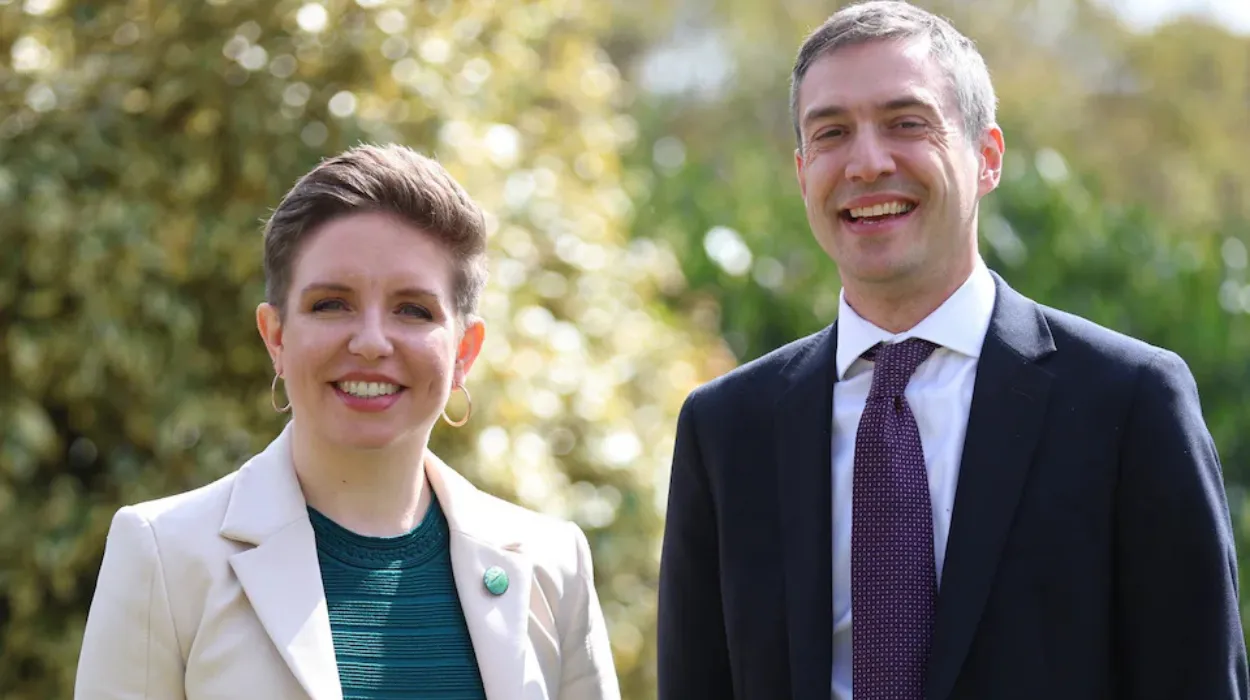UK (Parliament Politics Magazine) – Green Party divided on trans rights after Supreme Court ruling, with Carla Denyer advocating legal changes and Adrian Ramsay warning against reforms.
As reported by The Telegraph, Green Party leaders are divided over the Supreme Court’s landmark ruling on trans women’s legal identity.
On Wednesday, Adrian Ramsay sidestepped questions about whether he considers trans women to be women.
In contrast, Carla Denyer, his Green Party counterpart, affirmed that trans women are women. After the court’s ruling, she called for trans rights to be “enshrined and strengthened through the law.”
However, Mr Ramsay expressed disagreement, saying it was unclear whether the law needed to be changed.
What did Adrian Ramsay say about the Supreme Court’s ruling on trans women?
In response to whether trans women are women, Mr Ramsay stated,
“What the decision from the Supreme Court last week has done is provide some clarity in terms of the Equality Act.”
When pressed again if trans women are women, he responded,
“I think the important thing here is not to get hung up in divisions, in definitions.”
When asked a third time, Mr Ramsay said,
“But to ensure that everybody, regardless of how they define their identity, has access to the services that they need.”
He stated,
“Last week’s ruling has highlighted the potential for some services to be provided based on sex,”
adding,
“The question is how do we ensure that both women and trans people have access to the services that they need in a way that meets their needs and preserve their dignity.”
In response to his reluctance to answer, the Green Party co-leader said, “People know what the definition of a woman is.”
When questioned if the law should be changed, Mr Ramsay responded,
“I don’t think that is clear yet.”
He continued,
“We need to see the implications of the ruling and the Government hasn’t yet set out what this now means for how trans people access services as well as women being able to access services in a way that meets their needs and protects their dignity.”
What did Carla Denyer say about trans rights at the Bristol rally?
At a trans rights demonstration in Bristol on April 19, Green Party co-leader Carla Denyer stated,
“It is essential now more than ever that us politicians, us cis politicians, use our voices to advocate for trans rights and advocate for the rights of everyone, especially those who are on the sharp end of things right now, to be enshrined and strengthened through the law.”
Supreme Court ruling on trans women’s legal status
In a landmark judgment on 16 April, the Supreme Court ruled that trans women are not legally recognized as women under the Equality Act. Five judges ruled that the terms “woman” and “sex” in the Equality Act refer to biological women and biological sex. This judgment could significantly affect trans women’s access to women’s spaces and services.
In a detailed 88-page ruling, Lord Hodge, Lords Reed and Lloyd-Jones, and Ladies Rose and Simler, said that while the word “biological” isn’t included in the Equality Act,
“the ordinary meaning of those plain and unambiguous words corresponds with the biological characteristics that define a man or a woman.”
What did Keir Starmer say about the Supreme Court ruling on trans women?
The British Prime Minister, Sir Keir Starmer, praised the Supreme Court ruling, calling it “real clarity.” He highlighted the need for guidance to help organisations follow it.
In response to ITV West Country’s question about whether he would repeat that trans women are women, Keir Starmer stated,
“I think the Supreme Court has answered that question. A woman is an adult female, and the court has made that absolutely clear. I actually welcome the judgment because I think it gives real clarity. It allows those that have to draw up guidance to be really clear about what that guidance should say.”
He added,
“So I think it’s important that we see the judgment for what it is. It’s a welcome step forward. It’s real clarity in an area where we did need clarity. I’m pleased it’s come about. We need to move and make sure that we now ensure that all guidance is in the right place according to that judgment.”
What did Bridget Phillipson say about the Supreme Court ruling on trans women?
Education Secretary Bridget Phillipson, responsible for Equalities, said the ruling was essential.
She said,
“Before I was an MP I managed a women’s refuge, so I know more than most how important it is that women, especially those who have experienced male violence, sexual violence and trauma, can access safe therapeutic spaces, and alongside that, that we make sure that everyone in our society is treated with dignity and respect.”
In response to questions about differing views within Labour on the ruling, Ms Phillipson added,
“I speak for the government on this matter, and I can be crystal clear with you that we welcome the ruling.”

